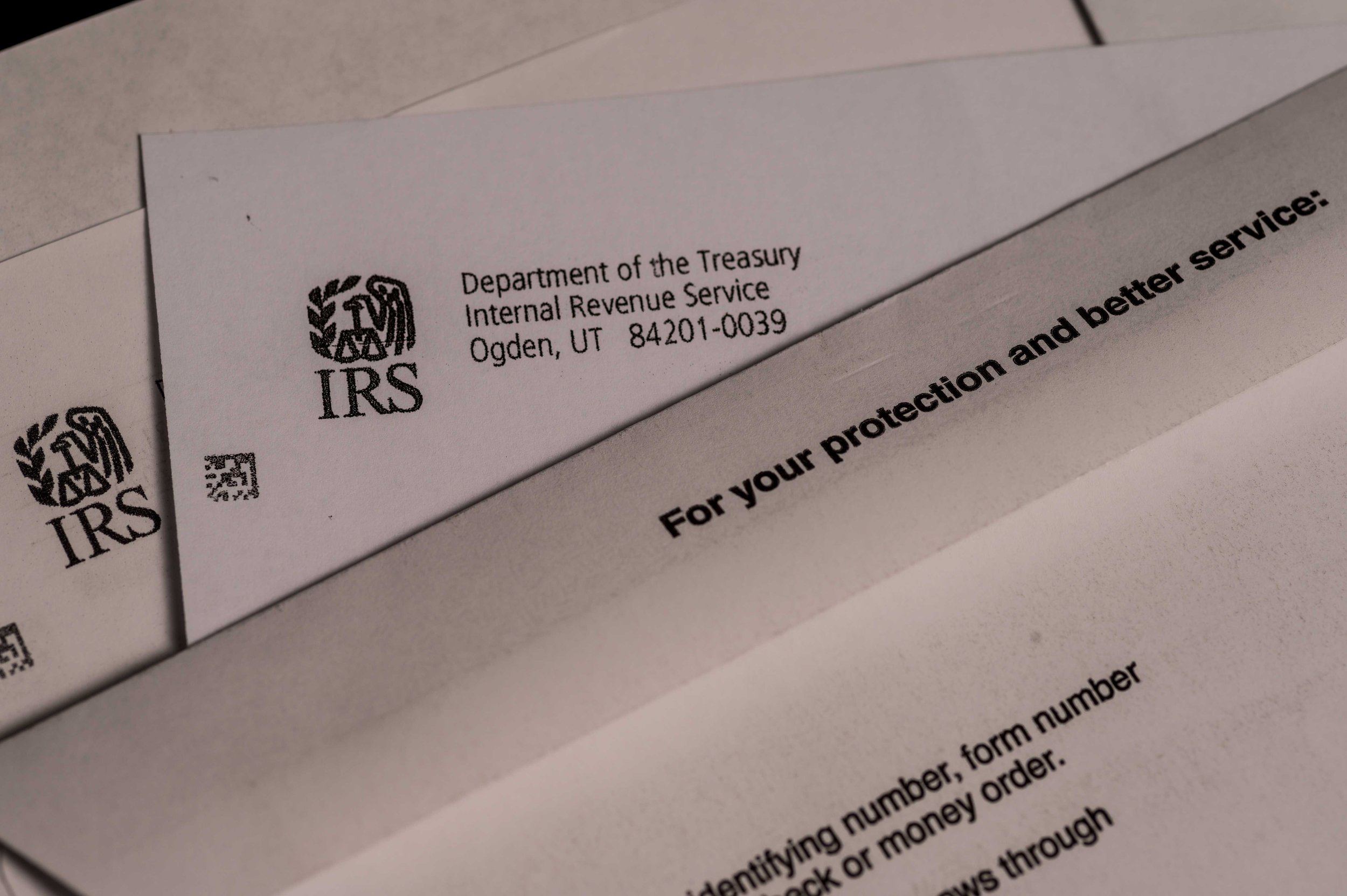What is an IRS Tax Levy?
Table of Contents
Tax Levies Defined & How to Prevent Them
A tax levy is a legal seizure of a taxpayer’s property to satisfy an outstanding tax debt. While related to a tax lien, a tax levy is a much more concerning collection action. With a levy, the IRS seeks immediate seizure of a taxpayer’s property.
A federal tax lien, in contrast, is simply a recorded claim against property, like a deed of trust recorded by a mortgage company against your house to secure the value of the mortgage. A levy threatens seizure of a taxpayer’s property that the IRS deems valuable. The IRS will sell the property and use the proceeds to pay the outstanding tax debt.
Levies take a few different forms. There are bank levies, where the IRS takes an entire bank account balance, and wage garnishments (called a continuous levy), where the IRS takes a large portion of every paycheck. Sometimes the IRS will seize personal property, like cars, jewelry, and art. In fact, the IRS can levy almost any property, including real estate, business assets, retirement accounts, and a taxpayer’s home. That said, certain categories of property are exempt from levy procedures. For example, the IRS will not literally take the clothes off your back. Unemployment benefits and public assistance payments are also usually off-limits. Furniture and household items valued less than $9,790 and tools used in a taxpayer’s business valued less than $4,890 are also exempt. The exemption values are tied to inflation and change every year. Apart from these few statutory exemptions, the IRS can take almost any property a taxpayer owns.
Do’s and Don'ts of Preventing IRS Levies
The easiest way to prevent a levy is to communicate and cooperate with the IRS. Ideally, a taxpayer should contact a tax attorney or reach out to the IRS when they receive the first demand for payment. Generally, the IRS will not levy a taxpayer who is negotiating a payment plan or offer-in-compromise. Taxpayers who can successfully demonstrate they have no ability to pay are also safe from levy procedures.
Importantly, a taxpayer should not transfer assets to friends or family members to put the asset out of the government’s reach. The IRS might deem the transfer a fraudulent conveyance and take the property anyway. The IRS can still recover the property, even if the property was later sold to a third party, and the taxpayer may be charged with tax evasion. If the IRS believes a taxpayer is trying to hide an asset or flee the country, it may issue a jeopardy levy, and take the property without any notice to the taxpayer.
Releasing a Levy
The IRS will release levies only in select circumstances. Of course, the IRS is required to release a levy when the statute of limitations on collections expires – usually ten years after the IRS assessed the tax. The IRS will certainly release a levy when the tax liability is paid in full. But the IRS has discretion in most other circumstances. The IRS will possibly release a levy if the release facilitates collection of the tax. For example, if the taxpayer agrees make payments in amounts larger than allowed under wage garnishment statutes by withholding more from her paychecks, the IRS will release the wage garnishment against the taxpayer. The IRS may also release a levy if the levy creates an economic hardship for the taxpayer. For instance, the IRS may release a levy on a taxpayer’s car when the car has little value and is needed to drive to work.
Getting Property Back After a Levy
Usually, the IRS prefers to levy liquid assets, such as bank accounts, that can easily pay outstanding taxes. When the IRS seizes other forms of property, like personal property or real estate, it will publish and send a Notice of Sale that tells the taxpayer a sale is scheduled. For personal property, this is a taxpayer’s last opportunity to pay the tax and get the property back – a taxpayer cannot recover personal property after a sale. Real estate, on the other hand, can be recovered through a process called redemption, where the taxpayer pays the buyer the purchase price of the property, plus 20% interest, and the expenses of the sale within 180 days of the sale.
The IRS will sometimes return levied property. For example, where the levy was erroneous, that is, the levy was premature or the IRS failed to follow correct procedures. Under the 2018 Bipartisan Budget Act, returns of funds levied from certain employee-sponsored retirement accounts can be deposited into an IRA and treated as a rollover.
When considering whether to return levied assets, the IRS considers the following factors:
The significance of any procedural error;
Economic hardships created by the levy;
The third-party received bad instructions about how much to send;
An error affected whether the levy should issue at all;
Possible inequities in keeping the payment;
The levy would have been released had all relevant facts been known before payment was received.
Need Help With Your IRS Tax Levy?
As a former IRS revenue agent turned tax attorney, Whitney Sorrell brings a unique skillset to serving his business clients. He knows what the IRS likes to see in your company records book and counsels his clients to keep proper documentation throughout the year.
He also assists business owners in preparing their company for growth by addressing all legal matters pertaining to business operations. Schedule a consultation today, and let us help you stay in control of your LLC.
References
IRC 6331(a); IRM 5.11.1. https://www.irs.gov/businesses/small-businesses-self-employed/levy ; https://www.irs.gov/businesses/small-businesses-self-employed/what-is-a-levy
IRC 6321; IRM 5.12.1. https://www.irs.gov/businesses/small-businesses-self-employed/understanding-a-federal-tax-lien ; https://www.irs.gov/businesses/small-businesses-self-employed/whats-the-difference-between-a-levy-and-a-lien
IRC 6335; Treas. Reg. 301.6335-1; IRM 5.10.5; https://www.irs.gov/businesses/small-businesses-self-employed/selling-your-property
IRC 6332(c); Treas. Reg. 301.6332-3; IRM 5.11.4; https://www.irs.gov/businesses/small-businesses-self-employed/information-about-bank-levies
IRC 6331(e); Treas. Reg. 301.6334-2; IRM 5.11.5; https://www.irs.gov/businesses/small-businesses-self-employed/information-about-wage-levies
IRC 6334(a); Treas. Reg. 301.6334-1; IRM 5.11.1; https://www.irs.gov/pub/irs-pdf/p594.pdf
IRC 6331(k); Treas. Reg. 301.6331-3; Treas. Reg. 301.6331-4; https://www.irs.gov/businesses/small-businesses-self-employed/how-do-i-avoid-a-levy
IRM 5.10.1; https://www.irs.gov/businesses/small-businesses-self-employed/temporarily-delay-the-collection-process
IRC 6331(d)(3); Treas. Reg. 301.6331-1
IRC 6343; Treas. Reg 301.6343-1; IRM 5.11.2
IRC 6343; Treas. Reg 301.6343-1; IRM 5.11.2
IRC 6343; Treas. Reg 301.6343-1; IRM 5.11.2
IRC 6343; Treas. Reg 301.6343-1; IRM 5.11.2; https://www.irs.gov/businesses/small-businesses-self-employed/what-if-a-levy-is-causing-a-hardship
IRC 6335; Treas. Reg. 301.6335-1; IRM 5.10.4; https://www.irs.gov/businesses/small-businesses-self-employed/what-happens-after-my-property-is-seized-and-how-do-i-get-it-back
IRC 6339
IRC 6337; https://www.irs.gov/businesses/small-businesses-self-employed/redeeming-your-real-estate
IRC 6343
IRC 6343; https://www.irs.gov/businesses/small-businesses-self-employed/how-do-i-get-a-levy-released
IRC 6343
IRM 5.11.2



